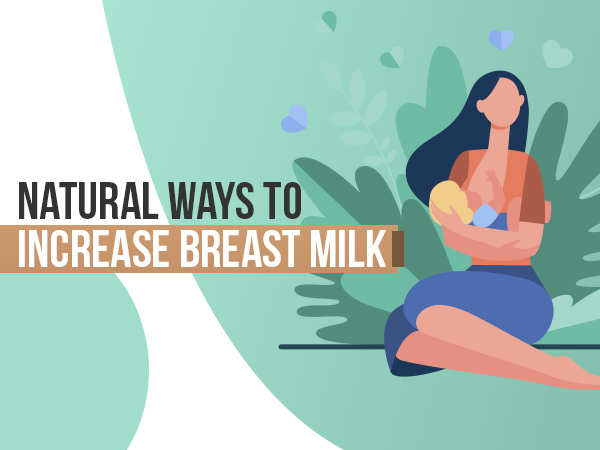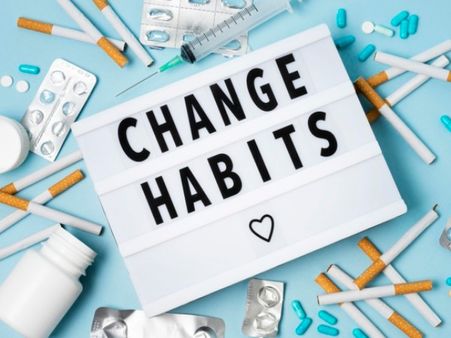Just In
- 1 hr ago

- 1 hr ago

- 2 hrs ago

- 2 hrs ago

Don't Miss
- Movies
 Main Hoon Saath Tere Launch Date, Full Cast: Mansi Srivastava To Play The Villain In Zee TV Show
Main Hoon Saath Tere Launch Date, Full Cast: Mansi Srivastava To Play The Villain In Zee TV Show - Sports
 T20 World Cup 2024: Bowl Hardik Bowl - Rohit Sharma, Rahul Dravid decide Hardik Pandya's WC Future?
T20 World Cup 2024: Bowl Hardik Bowl - Rohit Sharma, Rahul Dravid decide Hardik Pandya's WC Future? - News
 UPSC CSE Result 2023: Civil Services Final Result Out, Check Toppers List
UPSC CSE Result 2023: Civil Services Final Result Out, Check Toppers List - Automobiles
 Mahindra Bolero Neo+ SUV Launched In India At Rs 11.39 Lakh: 9 Seats, Variant Details & Much More
Mahindra Bolero Neo+ SUV Launched In India At Rs 11.39 Lakh: 9 Seats, Variant Details & Much More - Finance
 Tohfa, Tohfa, Tohfa: Tata's NBFC To Power; 9 Tata Group Stocks To Pay Massive Dividends In Coming Weeks
Tohfa, Tohfa, Tohfa: Tata's NBFC To Power; 9 Tata Group Stocks To Pay Massive Dividends In Coming Weeks - Travel
 From Coconut Breaking on Head to Men Dressing as Women: 12 Unique Indian Rituals Explored
From Coconut Breaking on Head to Men Dressing as Women: 12 Unique Indian Rituals Explored - Technology
 ASUS Zenbook DUO 2024 Launched in India – Check Price, Specs, Where to Buy
ASUS Zenbook DUO 2024 Launched in India – Check Price, Specs, Where to Buy - Education
 TN MRB Assistant Surgeon Recruitment 2024; 2553 Vacancies, Application Procedure Selection Details and more
TN MRB Assistant Surgeon Recruitment 2024; 2553 Vacancies, Application Procedure Selection Details and more
World Breastfeeding Week 2020: 13 Natural Ways To Boost Breast Milk Supply
World Breastfeeding Week (WBW) is observed every year from 1 to 7 August. Initiated by the World Alliance for Breastfeeding Action (WABA), World Health Organisation (WHO) and The United Nations Children's Fund (UNICEF) in 1991, the event aims to promote exclusive breastfeeding for the first six months of an infant's life, which yields many health benefits.

The theme of World Breastfeeding Week 2020 is "Support breastfeeding for a healthier planet." It raises the need for governments to protect and promote women's access to skilled breastfeeding counselling, a critical component of breastfeeding support.

On this World Breastfeeding Week (WBW), let us take a look at some of the most effective and natural ways to boost breast milk supply or production in mothers.

Natural Ways To Increase Your Breast Milk Supply
Breastfeeding is one of the most remarkable phases after childbirth, as it is the primary source of nourishment for the baby, and it also helps to create an ever-lasting bond between the mother and child [1]. Breast-feeding also comes with various benefits for both the mother and child. It helps the baby to have a stronger immune system, while it is known to help the new mother to lose pregnancy weight [2].
Breast-feeding can also soothe the baby and improve the baby's nervous system, while it is said to reduce the risk of breast cancer in the mothers. As breastfeeding is mostly the primary source of nutrition for the baby during the initial few months, the baby must be getting enough milk [3].
Breastfeeding can be a concern if you produce less milk, and you can't feed your baby. There are three rules of breastfeeding, or you can call them the three B's. These three B's are baby, breast and the brain. The breasts need stimulation from the baby to increase milk production. This can be achieved by increasing the frequency of feeding. Your mind should be relaxed, and there should be no stress [5][6].
Have a look at some tips to increase breast milk naturally at home.

1. Drink Plenty Of Water
Breast milk is made up of about 90 per cent water; that is, your body can't make milk if you are dehydrated [7]. Drinking about 6 to 8 glasses of water or other healthy liquids such as milk or fresh fruit juice can help you keep hydrated. If you feel dizzy or have a headache with dry mouth, it is an indication that you are dehydrated.

2. Eat An Anti-Inflammatory Diet
Include green vegetables, eggs, milk, garlic, onion, grape juice, chicken and meat soups to increase breast milk production [8]. A diet that is mostly fruits and vegetables, as well as foods rich in omega-3s like salmon and flaxseeds, are extremely good for breastfeeding women [9].
Some foods good for increasing breast milk production are fenugreek, oatmeal, fennel seeds, garlic, alfalfa etc.

3. Rest Well
Being exhausted can have a negative effect on your milk supply [10]. While stress is a natural part of being a new mother, try to find time to relax. Try to take a nap when your baby is sleeping, and do not hold back in asking for help.

4. Increase The Feeding Frequency
Try to give milk to your baby every three hours during the day and after every four hours during the night. Some mothers wait until their breasts fill up with milk, there is no need to do that as your breasts are always filled with milk for the baby, and the amount of milk in your breasts only increases when you feed your baby [11]. Your newborn should be breastfeeding for at least 10 minutes on each side. And if the baby falls asleep, try to wake him up gently to continue nursing [12].
Note: the fat content in your milk is seen to be higher if your baby is fed frequently. Frequent feedings ensure that the milk is healthy and devoid of excess fat.

5. Make Healthy Lifestyle Changes
Avoid physical and mental exertion and try to relax. These will help increase the hormones responsible for the production of breast milk. You can try stress-relief exercises or practice breathing techniques to manage stress levels [13]. Habits that can interfere with your supply of breast milk include smoking, taking the combination birth control pilland fatigue, which can be managed by making a few changes to your daily routine [14].

6. Have Skin-to-Skin Contact
Skin-to-skin contact, also called kangaroo care, has many benefits. The direct skin-to-skin contact helps lower the baby's stress, improves breathing and regulates body temperature [15]. Studies point out that boosting skin-to-skin contact with the mother and the infant can encourage a baby to breastfeed longer, and help a mother to make more breast milk [16].


7. Avoid Pacifiers
While breastfeeding babies can use a pacifier, studies say that it is best for the kids to start using it once after your milk supply is well established. Pacifiers will end the baby's suckling need and will not suck on your breast long enough to produce the required amount of milk [17].
Apart from these, the following measures can also help promote the production of breast milk in new mothers:
- Make sure that your baby is latching on to your breast correctly.
- Use breast compression, a technique used to help a baby take in more breast milk while breastfeeding, which in turn helps promote breast milk production [18].
- Use a breast pump or a hand expression technique to stimulate your breasts.
- Do not skip feedings or give your child baby formula.
- Avoid consuming too much caffeine, drinking alcohol or smoking [19].
- Keep an eye on your vitamin requirements.

On A Final Note…
Do not be embarrassed to ask for help from your family or friends. Talk to your doctor, a lactation consultant or other mothers. Make sure that you take care of your health so that you can take care of your baby.
-
 pregnancy parentingExpert Opinion On Breastfeeding: How It Will Help Baby And Mother
pregnancy parentingExpert Opinion On Breastfeeding: How It Will Help Baby And Mother -
 pregnancy parentingShattering Myths: Breastfeeding Success After Surviving Breast Cancer
pregnancy parentingShattering Myths: Breastfeeding Success After Surviving Breast Cancer -
 pregnancy parentingWeight Loss: Can I Diet While Breastfeeding? How Much Weight Can I Lose?
pregnancy parentingWeight Loss: Can I Diet While Breastfeeding? How Much Weight Can I Lose? -
 pregnancy parentingBreastfeeding Pain: What To Do When It Hurts
pregnancy parentingBreastfeeding Pain: What To Do When It Hurts -
 pregnancy parentingWhat To Do If You Get Dengue When Breastfeeding
pregnancy parentingWhat To Do If You Get Dengue When Breastfeeding -
 pregnancy parentingWorld Breastfeeding Week 2023: Can You Breastfeed If You Have Hyperthyroidism?
pregnancy parentingWorld Breastfeeding Week 2023: Can You Breastfeed If You Have Hyperthyroidism? -
 pregnancy parentingWorld Breastfeeding Week 2023: Expert Tips For Breastfeeding In Public; Is It Legal In India?
pregnancy parentingWorld Breastfeeding Week 2023: Expert Tips For Breastfeeding In Public; Is It Legal In India? -
 pregnancy parentingWorld Breastfeeding Week 2023: When Breastfeeding Might Not Be The Right Choice: Who Shouldn't Breastfeed?
pregnancy parentingWorld Breastfeeding Week 2023: When Breastfeeding Might Not Be The Right Choice: Who Shouldn't Breastfeed? -
 healthBreastfeeding And Periods: Is It Okay To Breastfeed Your Baby During Menstruation?
healthBreastfeeding And Periods: Is It Okay To Breastfeed Your Baby During Menstruation? -
 pregnancy parentingWorld Breastfeeding Week 2023: What Do You Do If Your Baby Doesn’t Like Breastfeeding?
pregnancy parentingWorld Breastfeeding Week 2023: What Do You Do If Your Baby Doesn’t Like Breastfeeding? -
 pregnancy parentingWorld Breastfeeding Week 2023: Do Babies Choke On Breast Milk? Find Out Here!
pregnancy parentingWorld Breastfeeding Week 2023: Do Babies Choke On Breast Milk? Find Out Here! -
 pregnancy parentingWorld Breastfeeding Week 2023: Breastfeeding Made Easy; Expert Advice For New Mothers
pregnancy parentingWorld Breastfeeding Week 2023: Breastfeeding Made Easy; Expert Advice For New Mothers


 Click it and Unblock the Notifications
Click it and Unblock the Notifications




